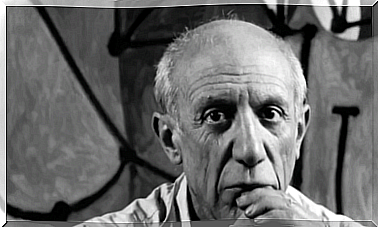7 Steps To Get You Closer To The Life You Want

A person’s life is often a repetition or recreation of the past. We often live the same way we lived with our family and at school, without asking ourselves what we really want or if this is the way we want to do things.
What we have experienced in the past has shaped us and brought us to where we are today. However, it is always possible to change.
To achieve lasting change that helps us move forward in our life, it is necessary to know ourselves in depth, and to give a sincere answer to certain complicated questions such as: How do we become what we are? How can we act differently?
Negative adaptations to our early environment may have prompted us to develop characteristics that define us.
The behaviors we least like about us are usually the faults of people who have had an influence on us – parents, teachers or other important referents – and whom we have considered our own.
When we take a closer look at these characteristics, we can begin to see how they affect our careers, relationships, and goals.
The process of differentiation, during which we separate ourselves from the customs that we have established by imitation, is not an easy step since the interpretation of the world we are defending is built like a puzzle.
In this puzzle, the ideas are interrelated and eliminating one can bring down the whole puzzle.
So, we prefer to keep these ideas even if we know they are wrong, so as not to fall into the abyss of analyzing our own construction and have to demolish it.
Dr Robert Firestone describes this process of differentiation as a seven-step path to break free from past recipes and become who we really are.
Discover these different steps:
7 steps to living the life you’ve always wanted
# 1 – Analyze the attitudes that hurt you. Begin by describing the attitude of this person who influences your life in its most extreme form. Examine this attitude from the outside.
# 2 – Once you’ve identified these attitudes, think about how they affect your cognitions, behaviors, and feelings.
# 3 – Eliminate the defensive attitude as a habit. People often have several black holes in their past, which makes it difficult for them to see the influence of it on the present.
How to eliminate this lack of visibility? A good solution is to speak with people who have recently entered your life, and who can see things from a more distant point of view.
# 4 – Once you have delineated the influence of your past on the present moment, it will be easier for you to see what you want to change.
# 5 – Take note of the times when you react in a way that you don’t like.
This will be very helpful to you in the process of differentiation, which allows you to know yourself better, to identify the threads of your life and to ask yourself what is happening in those moments.
Often times, our automatic reactions largely condition us and cause us to overwhelm ourselves with feelings as unpleasant as guilt.
# 6 – The initial inability to overcome unwanted behavior can generate anxiety and insecurity. It’s about resisting the temptation to give up, and taking your goals seriously, because no one said it was easy.
# 7 – Remember, no one is perfect. The role models you are changing have a deep emotional connection to your past.
If you find yourself repeating a mistake all the time, don’t judge yourself harshly and generalize.
See your behavior as the result of the way you think, and luckily you are changing it.
What’s the next thing you’re going to change about yourself?









